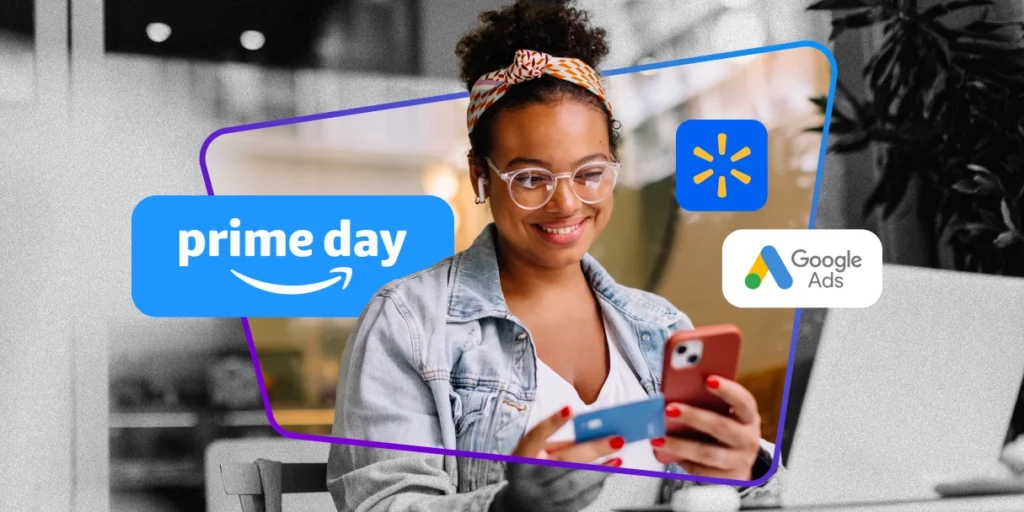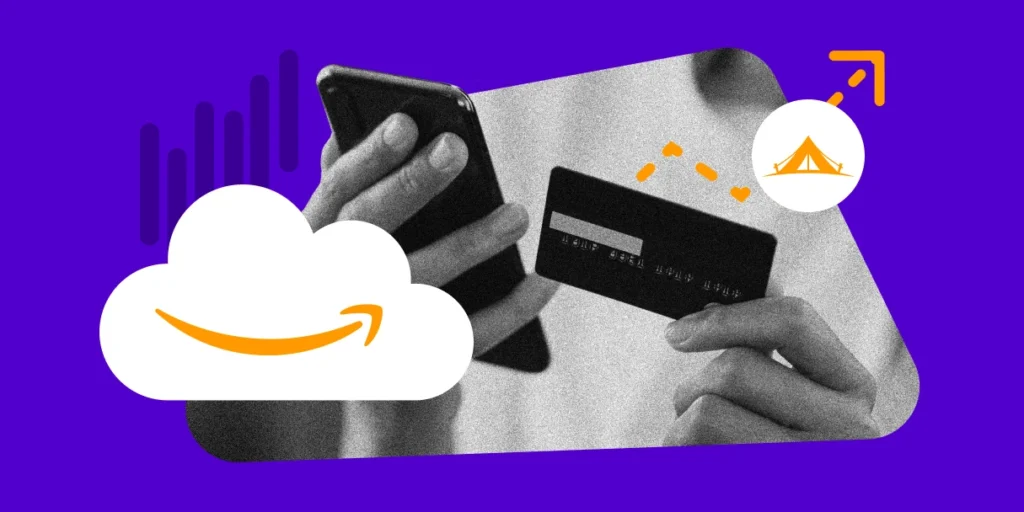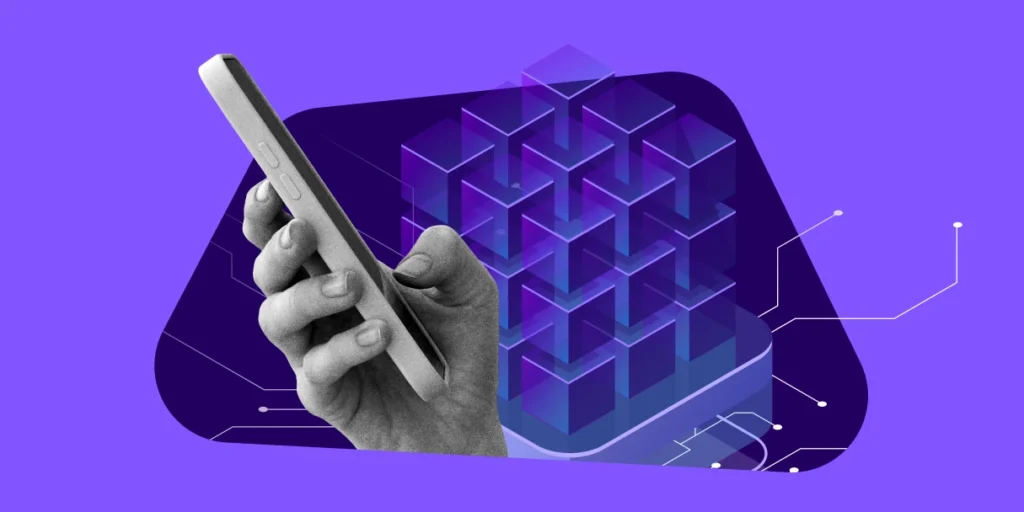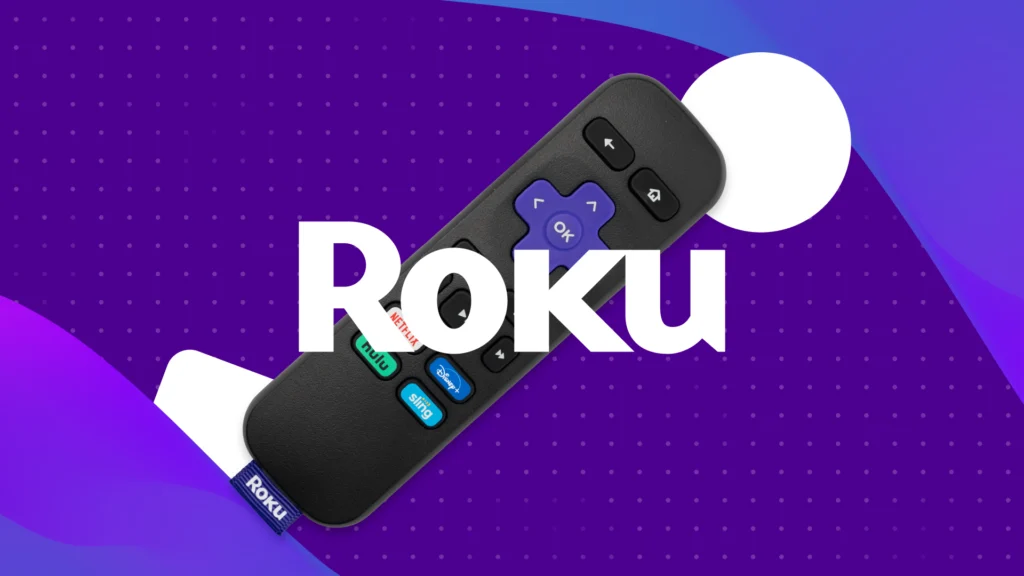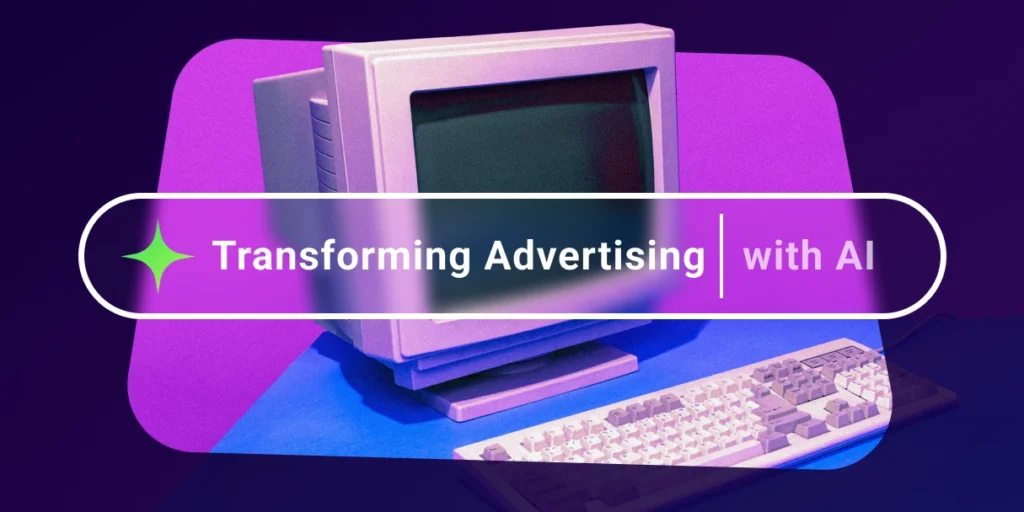From tracking coffee beans to cryptocurrency payment methods, to building more intuitive loyalty programs — the blockchain wave is already here and quietly making inroads into the retail and CPG sectors.
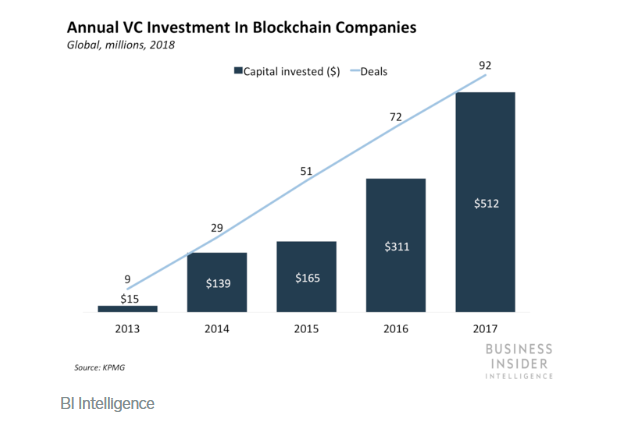
While still in its early phase (it’s often compared to the early internet), blockchain is believed to have potential to disrupt many of today’s major industries, from finance to logistics, to public services and voting, and yes, even the retail and CPG industry.
For the retail and CPG sectors, blockchain may empower companies “to track, trace, and authenticate products, record contracts and transactions and guarantee the movement of information,” says Steve Larke of Deloitte in a recent press release.
These applications are promising, but many still lack the maturity and development to graduate from proof-of-concepts to working applications, explains Nikki Baird, VP of Retail Innovation at Aptos Retail.
While blockchain is not going to revolutionize retail tomorrow, there are enough changes coming and enough real players involved in innovation and investment, that retailers need to pay attention to how it will impact their industry.

-Nikki Baird, Vice President of Retail Innovation at Aptos Retail
Not familiar with blockchain or how it works? Jump to What Is Blockchain? for a brief primer.
Blockchain Opportunities in the Retail and CPG Sector
Recent reports by Deloitte and the Interactive Advertising Bureau outline several strategic use-cases for blockchain:
- Payments and contracts
- Consumer experience
- Supply chain
- Advertising
Blockchain payments, business contracts, and record keeping
Strategic use-cases for blockchain can be found in both payments and contracts.
- Consumer payments: Improving transaction processes by reducing costs and processing times caused by banks and third-parties
- B2B payments: Facilitating B2B agreements between institutions using smart contracts to improve speed, reduce intermediary costs
- Securing records and consumer data: Storing records (purchases, warranties, ownership status) on the blockchain so that they can be easily verified and transferred
Coinbase, a leading Bitcoin exchange based in San Francisco, just deployed a fully-functional WooCommerce plugin that enables millions of merchants to accept cryptocurrency transactions online.
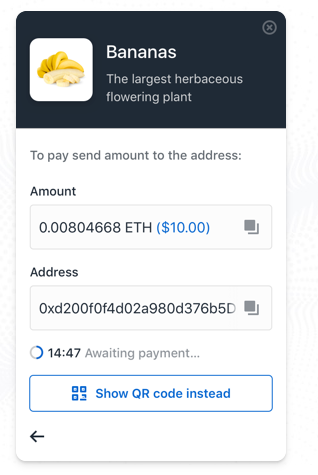
Coinbase has also developed a similar app enabling cryptocurrency payments for Shopify.
There are also a growing number of major retailers and services that now accept Bitcoin, among other cryptocurrencies.
The earliest of these was Overstock.com, which began accepting Bitcoin as a form of payment back in 2014.
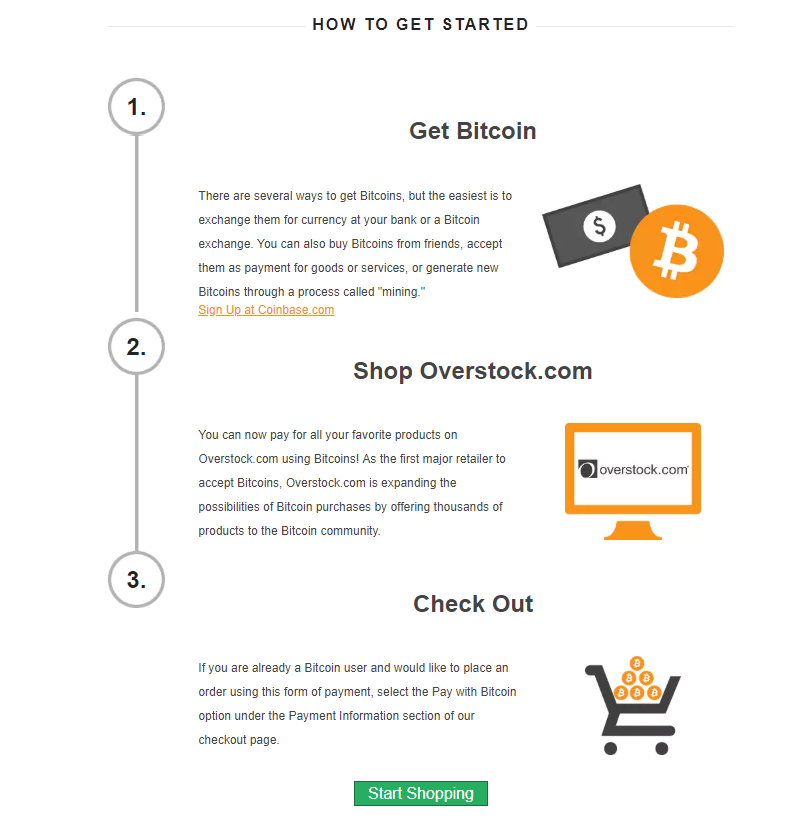
“I think there is greater short-term gain from focusing on ‘private’ blockchains like the one Walmart is setting up around food safety, than there is in smart contracts,” explains Nikki.
“That will change over time, but smart contracts will take a while to mature because there are so many parties involved.”
Ideally, blockchain will power replacing letters of credit for sourcing transactions and smooth export/import processes, but these all require banking and government levels of acceptance before they will take off.
Blockchain-based supply chains
“Probably the most valuable and mature application is in supply chain security – ensuring tracking of the movement of goods from a food safety perspective, for example,” explains Nikki.
Deloitte’s report finds a number of ways in which blockchain can improve supply chain efficiencies.
- A fully integrated supply chain: enable manufacturers to seamlessly order and trace shipments of goods while creating and verifying all touchpoints by all parties in real-time
- Authenticity and provenance: enable every party, from manufacturer to shipper, to recipient, to add a verifiable record on the blockchain to prove authenticity and location history of goods
- Delivery: allow consumers and retailers to track the shipment process of goods delivered to home and store locations
IBM and Maersk have announced a partnership to develop blockchain-powered, cross-border shipping system that will reduce costs, shorten delays, and eliminate fraud and human errors.
Coffee company Brooklyn Roasting Co is also using blockchain to track internationally sourced coffee beans — offering their customers next-level transparency of where their coffee beans come from.

“There are benefits to saving costs by integrating all of the various players in moving goods through the supply chain – farmers, logistics, processing, transportation, export/import, distribution, retailers,” says Nikki.
It could also speed the flow of information. So, if there is contamination or a recall, making it faster and easier to track down the source and all touch points of the contamination – that saves costs, and could also potentially save lives.
Walmart and other food giants have recently partnered to do exactly this — applying the benefits of the distributed ledger for food supply chains to track everything from Chinese pork to Mexican mangoes.
Blockchain-powered loyalty programs, consumer participation, and loss prevention
Blockchain also holds a number of opportunities for “improving and protecting the user experience,” according to Deloitte.
- Loyalty programs: record and store consumer behavior data that can be tracked to improve marketer targeting and incentives for customer loyalty
- Consumer participation: provide a secure and transparent voting system for consumer surveys and competitions
- Loss prevention: record and tag consumer purchases so that if they end up in later transactions, the rightful owner is notified
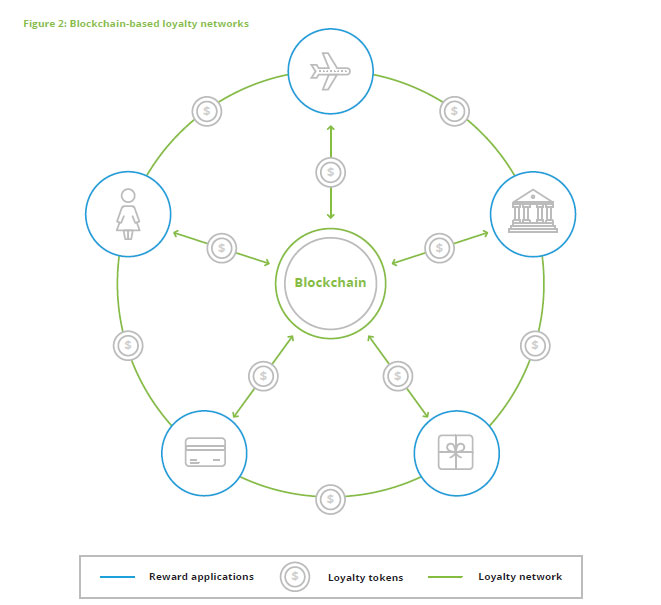
Japanese ecommerce giant Rakuten is already developing a cryptocurrency loyalty program. Singapore Airlines is building a blockchain loyalty rewards wallet.
Others, from restaurant chains to coffee brands — have also announced intentions to build blockchain-based loyalty programs.
While granting cryptocurrency rewards for shopping may excite some, Nikki cautions that many consumers may then trade or sell these currencies rather than spending them at the original brand or retailer — therefore defeating the purpose of customer loyalty in the first place.
They don’t want to share that customer relationship with anyone else. Why go to all that trouble of getting the customer’s loyalty if they’re not willing to stick around and redeem the rewards directly with that retailer?
Blockchain in digital advertising
Major problems facing the digital advertising space include a lack of transparency and the prevalence of bots that end up hurting both consumers and advertisers, according to Nikki Baird, VP of Retail Innovation at Aptos Retail.
Blockchain, while still considered in its early phases, may provide solutions to these problems.
According to IAB, blockchain technology has the potential to:
- Improve on the efficiency and reliability of data by improving transaction speeds and consumer tracking
- Protect sensitive audience data through a decentralized database that nullifies any single entry of attack from hackers
- Improve on trust and transparency by keeping a verifiable and immutable record of advertising data
- Reduce ad fraud by creating and storing an audit trail between brands and consumers
“What’s happening now is that some middlemen in online placement are placing ads either where they are explicitly told not to place them – on, say, pornography sites, for example – or worse, onto fake sites” explains Nikki.
“Those fake sites then employ a bunch of bots to simulate consumer activity to make it look like the site is heavily trafficked and the ads are clicked on – costing advertisers.”
If every site that gets placement is added to the blockchain, then retailers and brands can do a better job of auditing their placements, making it easier for them to see where their ads are getting placed and if those sites are bot-ty or not.
There are also a number of blockchain advertising platforms that are redefining how advertisers can incentivize the attention of an audience. One platform, Basic Attention Token, rewards users with BAT tokens when they engage with digital advertisements and publisher content.
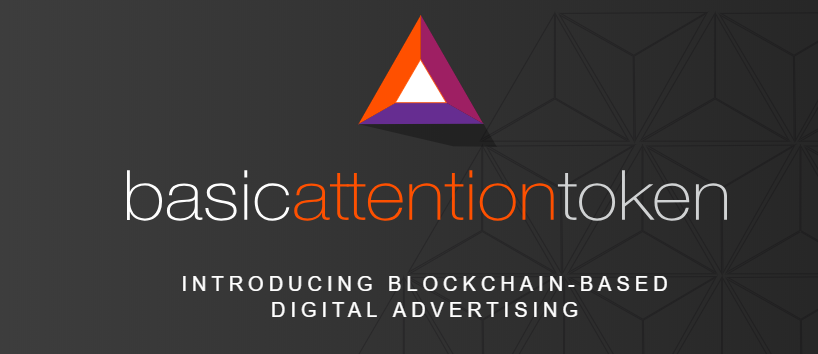
While the technology has promising potential in the advertising space, many still believe that it’s still too early to determine what, if any, major impacts it will have for digital advertisers.
One of the biggest problems facing greater adoption of the technology is scalability — or transaction speeds — are still too slow to compete with today’s leading centralized networks (i.e., Visa).
The Bottom Line – Blockchain Will Test the Retail and CPG Sectors
Whether you are a blockchain evangelist or believe that the hype is overrated, the technology is here.
As the retail and CPG industries continue to be rocked by changes in consumer behavior and digital applications, any technology that offers a potential to reduce costs, improve security and transparency, and ultimately the customer experience — is going to be a technology that retailers and advertisers are going to test for themselves.
Blockchain is still a young space. Companies diving in head-first are taking big risks. But that does not mean you should avoid sticking your toe in the water. There’s a lot to be learned and I definitely wouldn’t recommend sitting it out entirely.
What Is Blockchain?
A blockchain is a decentralized ledger (database) that records transactions (blocks) that are cryptographically linked together in a growing chain.
This simple idea holds some major implications as it can be applied to more than just transacting currencies like Bitcoin.
To best understand the advantages of blockchain, it helps to have a basic understanding of how it all works.

How does a blockchain work?
1. A blockchain is a distributed ledger (Bitcoin’s is public, others can be private) that is shared across a global network of nodes (computers).
2. Each node maintains an up-to-date copy of the ledger.
3. When a transaction takes place or information is recorded, all nodes must validate the transaction (a consensus protocol).
4. After all nodes have validated the transaction, it is mathematically encrypted and added as a block to the existing ledger (chain).
A theoretical and technological breakthrough?
Blockchain technology is considered a breakthrough by many for its simple yet potentially game-changing design.
Decentralized infrastructure means there’s no central vault to hack
The fact that the network is maintained by a decentralized network of computers rather than a centralized database means that there is no single entry of attack.
To manipulate the blockchain, hackers would essentially have to compromise more than 50% of the nodes.
When a network is maintained by hundreds, thousands, or even millions of computers — you can begin to understand how this can dilemma can confound hackers.
Consensus protocols prevent fraud and double spending
By having a consensus protocol that requires all nodes to validate a block (transaction or information being added to the ledger) before being added to a chain, blockchains effectively solve the problem of double spending or a bad actor manipulating a transaction.
Smart contracts enable a “trustless” environment between peers
One of the most promising applications of blockchain is smart contracts, or contracts that are executed when specific conditions are met.
Smart contracts remove the need for an intermediary (or central authority) to execute an agreement between two peers.
Third party intermediaries mean more people and institutions are involved, more costs, and more slowdown — smart contracts have the potential to reduce or eliminate these factors.
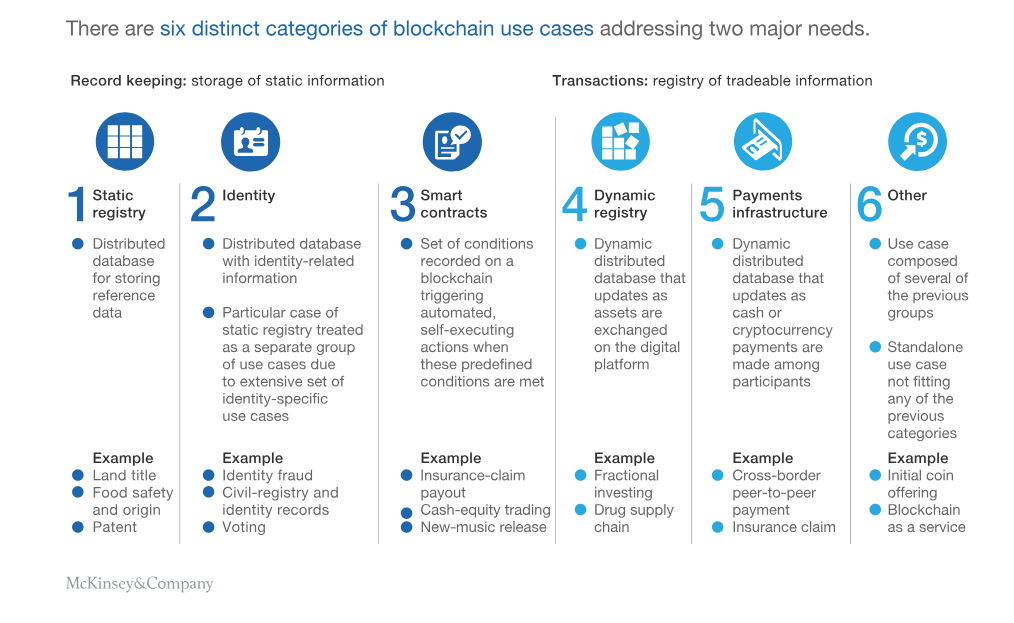
Click here to return to Blockchain Opportunities in the Retail and CPG Sector
You Might Be Interested In




